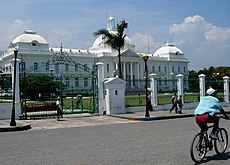
United Nations Security Council resolution 940, adopted on 31 July 1994, after recalling resolutions 841 (1993), 861 (1993), 862 (1993), 867 (1993), 873 (1993), 875 (1993), 905 (1994), 917 (1994) and 933 (1994), the Council permitted a United States-led force to restore President Jean-Bertrand Aristide and authorities of the Government of Haiti, and extended the mandate of the United Nations Mission in Haiti (UNMIH) for an additional six months.
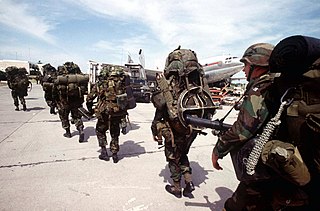
Operation Uphold Democracy was a multinational military intervention designed to remove the military regime led and installed by Raoul Cédras after the 1991 Haitian coup d'état overthrew the elected President Jean-Bertrand Aristide. The operation was effectively authorized by the 31 July 1994 United Nations Security Council Resolution 940.

United Nations Security Council resolution 862, adopted unanimously on 31 August 1993, after recalling resolutions 841 (1993), 861 (1993) and an agreement between the President of Haiti and the Commander-in-Chief of the Armed Forces of Haiti, the Council reaffirmed the international community's commitment to a solution in Haiti and discussed the establishment of a new police force in Haiti under a proposed United Nations Mission in Haiti (UNMIH).
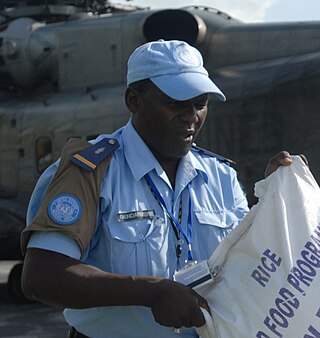
United Nations Security Council resolution 867, adopted unanimously on 23 September 1993, after recalling resolutions 841 (1993), 861 (1993) and 862 (1993) on the situation in Haiti, the council reiterated its position of protecting international peace and stability and established the United Nations Mission in Haiti (UNMIH).
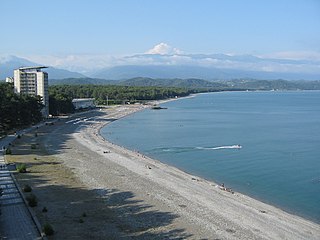
United Nations Security Council resolution 881, adopted unanimously on 4 November 1993, after reaffirming resolutions 849 (1993), 854 (1993), 858 (1993) and 876 (1993) concerning the Georgian–Abkhazian war, the Council extended the mandate of the United Nations Observer Mission in Georgia (UNOMIG) until 31 January 1994.

United Nations Security Council resolution 905, adopted unanimously on 23 March 1994, after recalling resolutions 841 (1993), 861 (1993), 862 (1993), 867 (1993), 873 (1993) and 875 (1993), on the situation in Haiti, the council extended the mandate of the United Nations Mission in Haiti (UNMIH) until 30 June 1994.

United Nations Security Council resolution 917, adopted unanimously on 6 May 1994, after recalling resolutions 841 (1993), 861 (1993), 862 (1993), 867 (1993), 873 (1993) and 875 (1993) and 905 (1994) on the situation in Haiti, the Council imposed further international sanctions on the country after the military authorities refused to implement the Governors Island Agreement to hand over power and instances of violations of human rights.

United Nations Security Council resolution 922, adopted unanimously on 31 May 1994, after reaffirming Resolution 696 (1991) and all subsequent resolutions on Angola, the council discussed the peace process during the civil war and extended the mandate of the United Nations Angola Verification Mission II until 30 June 1994.

United Nations Security Council resolution 929, adopted on 22 June 1994, after recalling all resolutions on Rwanda, including 912 (1994), 918 (1994) and 925 (1994), the council authorised, under Chapter VII of the United Nations Charter, the temporary establishment of a multinational operation in the country to assist in humanitarian efforts and protect refugees and displaced people, until the full deployment of the expanded United Nations Assistance Mission for Rwanda (UNAMIR).

United Nations Security Council resolution 933, adopted unanimously on 30 June 1994, after recalling resolutions 841 (1993), 861 (1993), 862 (1993), 867 (1993), 873 (1993), 875 (1993), 905 (1994) and 917 (1994), the Council noted the deteriorating situation in Haiti and extended the mandate of the United Nations Mission in Haiti (UNMIH) until 31 July 1994.

United Nations Security Council resolution 937, adopted on 21 July 1994, after reaffirming resolutions 849 (1993), 854 (1993), 858 (1993), 876 (1993), 881 (1993), 892 (1993), 896 (1994), 901 (1994), 906 (1994) and 934 (1994), the Council expanded the United Nations Observer Mission in Georgia (UNOMIG) to include co-operation with the Commonwealth of Independent States (CIS) and extended its mandate until 13 January 1995.

United Nations Security Council Resolution 944, adopted on 29 September 1994, after recalling resolutions 841 (1993), 861 (1993), 862 (1993), 867 (1993), 873 (1993), 875 (1993), 905 (1994), 917 (1994), 933 (1994) and 940 (1994), the Council affirmed its willingness to suspend sanctions against Haiti once the legitimate President Jean-Bertrand Aristide had returned following the removal of the military junta.

United Nations Security Council resolution 964, adopted on 29 November 1994, after recalling resolutions 841 (1993), 861 (1993), 862 (1993), 867 (1993), 873 (1993), 875 (1993), 905 (1994), 917 (1994), 933 (1994), 940 (1994), 944 (1994) and 948 (1994), the council noted the progress in Haiti and strengthened the advance team of the United Nations Mission in Haiti (UNMIH).

United Nations Security Council resolution 971, adopted unanimously on 12 January 1995, after reaffirming resolutions 849 (1993), 854 (1993), 858 (1993), 876 (1993), 881 (1993), 892 (1993), 896 (1994), 901 (1994), 906 (1994), 934 (1994) and 937 (1994), the Council extended the United Nations Observer Mission in Georgia (UNOMIG) until 15 May 1995.
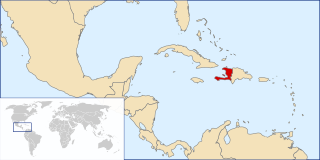
United Nations Security Council resolution 975, adopted on 30 January 1995, after recalling resolutions 841 (1993), 861 (1993), 862 (1993), 867 (1993), 873 (1993), 875 (1993), 905 (1994), 917 (1994), 933 (1994), 940 (1994), 944 (1994), 948 (1994) and 964 (1994), the Council discussed the transfer of responsibility from the Multinational Force (MNF) to the United Nations Mission in Haiti (UNMIH) and extended the mandate of UNMIH for a further six months until 31 July 1995.

United Nations Security Council resolution 1001, adopted unanimously on 30 June 1995, after reaffirming resolutions 813 (1993), 856 (1993), 866 (1993), 911 (1994), 950 (1994) and 972 (1995), and 985 (1995) on Liberia, the Council discussed the implementation of peace agreements in the country and extended the mandate of the United Nations Observer Mission in Liberia (UNOMIL) until 15 September 1995.
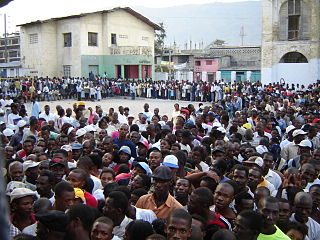
United Nations Security Council resolution 1007, adopted unanimously on 31 July 1995, after recalling resolutions 841 (1993), 861 (1993), 862 (1993), 867 (1993), 873 (1993), 875 (1993), 905 (1994), 917 (1994), 933 (1994), 940 (1994), 944 (1994), 948 (1994), 964 (1994) and 975 (1995), the Council discussed the election process and extended the mandate of the United Nations Mission in Haiti (UNMIH) for a further seven months.
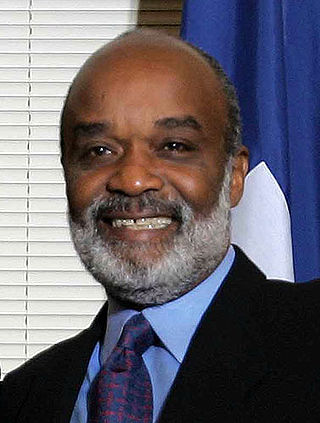
United Nations Security Council resolution 1048, adopted unanimously on 29 February 1996, after recalling resolutions 841 (1993), 861 (1993), 862 (1993), 867 (1993), 873 (1993), 875 (1993), 905 (1994), 917 (1994), 933 (1994), 940 (1994), 944 (1994), 948 (1994), 964 (1994), 975 (1995) and 1007 (1995) on Haiti, the Council extended the mandate of the United Nations Mission in Haiti (UNMIH) for four months until 30 June 1996, and reduced its size.

United Nations Security Council resolution 1063, adopted unanimously on 28 June 1996, after recalling all Security Council and General Assembly resolutions on Haiti and the termination of the United Nations Mission in Haiti (UNMIH) on 30 June 1996 in accordance with Resolution 1048 (1996), the Council decided to establish the United Nations Support Mission in Haiti (UNSMIH) to train a national police force and maintain a stable environment.

United Nations Security Council resolution 1086, adopted unanimously on 29 November 1996, after recalling all relevant Security Council and General Assembly resolutions on Haiti, the Council decided to extend the United Nations Support Mission in Haiti (UNSMIH) for a final time, until 31 May 1997, unless it could make further progress, in which case, it would be extended until 31 July 1997.
